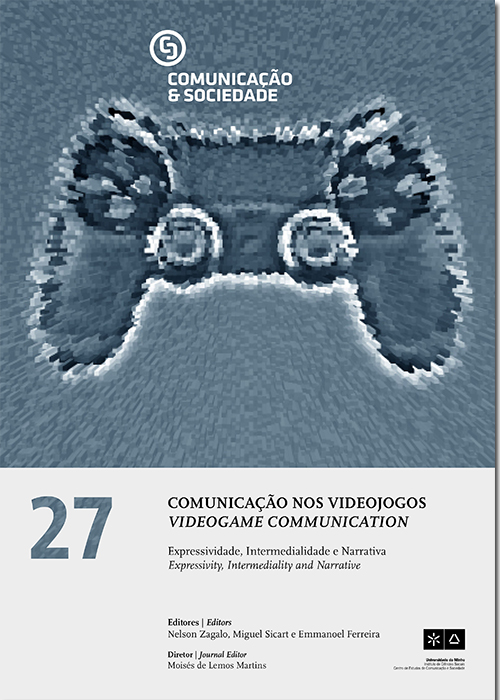The expressive power of the Possible Worlds Theory in video games: when narratives become interactive and fictional spaces
DOI:
https://doi.org/10.17231/comsoc.27(2015).2102Palavras-chave:
Video games, possible worlds, narrative, game space, fictionResumo
The philosophical concept of possible worlds (Lenzen, 2004; Lewis, 1986) has been used in literary studies and narratology (Dolezel, 1998; Eco, 1979) to define the way in which we conceive different narrative possibilities inside the fictional world. In Game Studies, some authors have used this concept to explore the relationship between game design and game experience (Kücklich, 2003; Maietti, 2004; Ryan, 2006), while Jesper Juul (2005) has studied the fictional world evoked by the connection between rules and fiction. In this paper we propose a new approach to video games as ludofictional worlds - a set of possible worlds which generates a game space based on the relationship between fiction and game rules. In accordance with the concepts of minimal departure (Ryan, 1991) and indexical term (Lewis, 1986), the position of the player character determines his/her actual world and the next possible or necessary world. Lastly, we use this model to analyse the video game The Elder Scrolls V: Skyrim and show that the possible worlds perspective provides a useful, flexible and modular framework for describing the internal connections between ludofictional worlds and the interactive nature of playable game spaces.
Downloads
Downloads
Publicado
Como Citar
Edição
Secção
Licença
Os autores são titulares dos direitos de autor, concedendo à revista o direito de primeira publicação. O trabalho é licenciado com uma Licença Creative Commons - Atribuição 4.0 Internacional.












